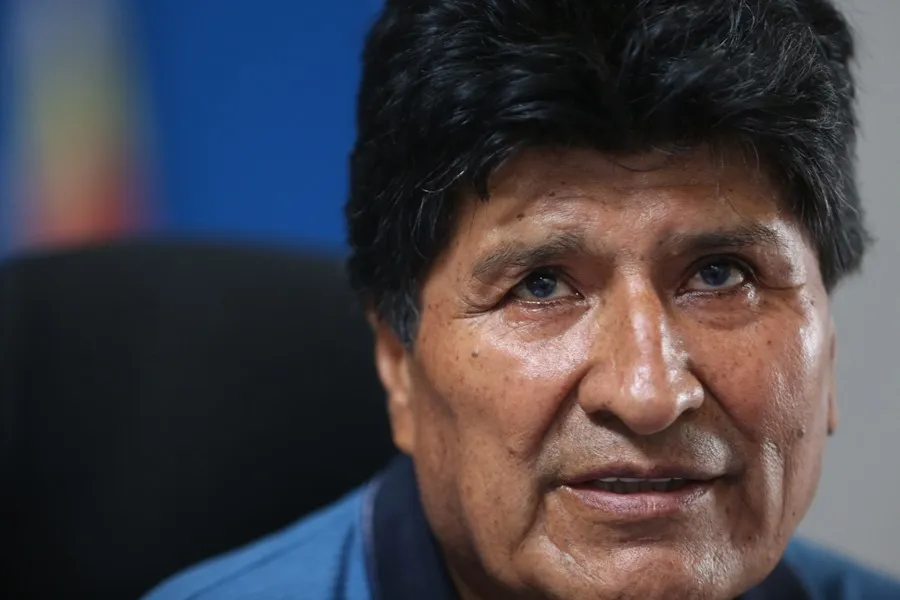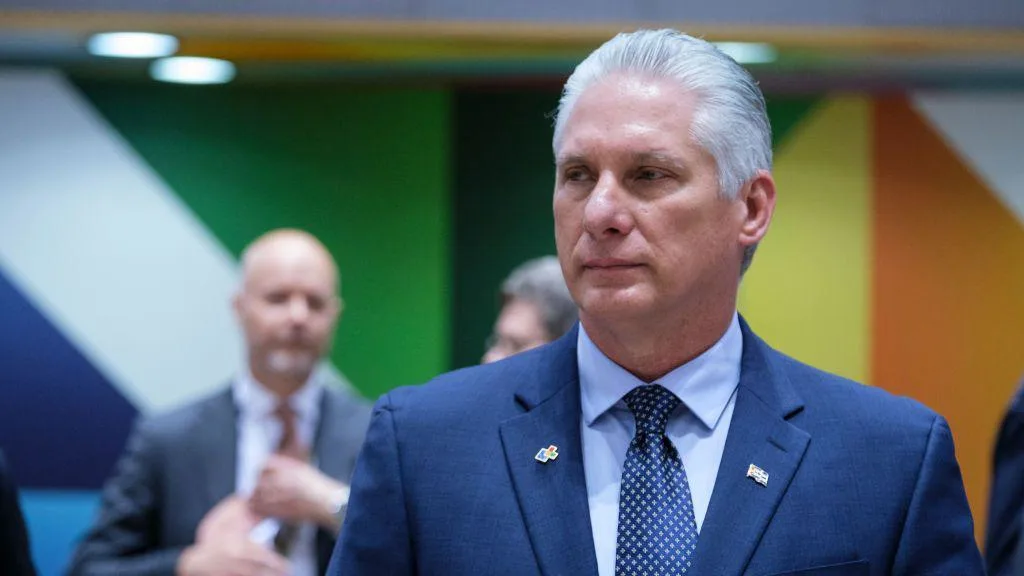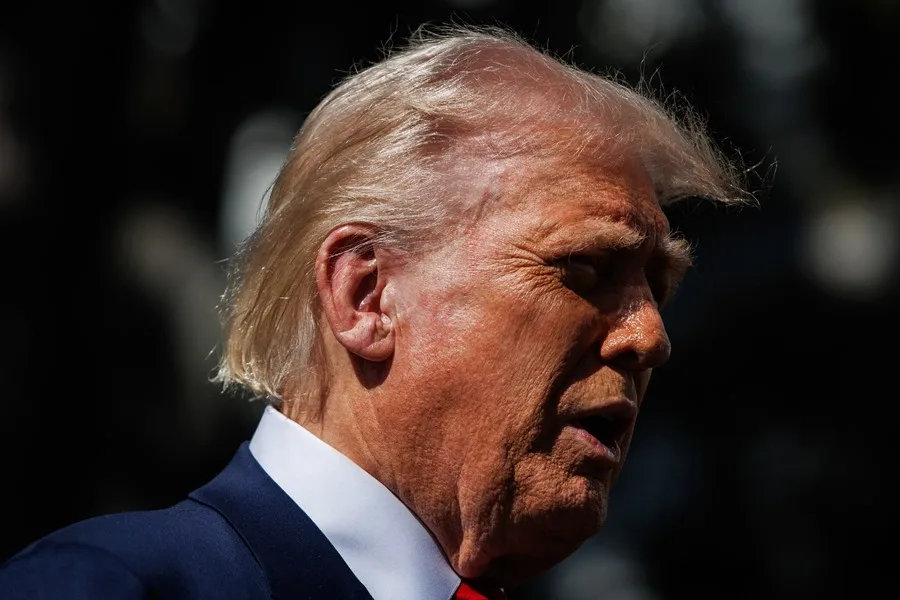International
Evo Morales reinforces his security in the Tropic with foreigners and hopes that more will arrive

The former president of Bolivia Evo Morales (2006 – 2019) will strengthen his security in the Tropic of Cochabamba, his political and union stronghold, with the presence of young foreigners who formed the International Committee on Defense and Solidarity with the former president, two of its leaders reported this Sunday.
“We are going to have vigil activities in defense of Evo Morales (…) We came to Lauca Ñ and here we are going to be with several activities but also in (the central city of) Cochabamba where we will give talks from the committee,” said the university student of Argentina María Macedo, interviewed on the Kawsachun Coca radio, related to Morales.
Macedo together with the Chilean Felipe Barriga arrived at the town of Lauca Ñ, where the former president has been protected by hundreds of coca growers and peasants since November 2024.
The student emphasized that she and her partner arrived in Bolivia “on their own free will” and that they will follow Morales out of “conviction and loyalty.”
“I was surprised (the news of) that there was a committee of defense and solidarity with Evo, at first I didn’t believe so much, time goes by, it was confirmed and I am totally convinced that we have some brothers and sisters outside Bolivia who support our policy,” Morales said.
The former governor ceased to be the president of the official Movement to Socialism (MAS) in November 2024, after the judicial and electoral bodies validated a congress held in May 2024 by the ‘arcista’ faction, as the followers of President Luis Arce are known, who elected as the new leader of the party the peasant leader Grover García, related to the Government.
Despite these resolutions, Morales announced that he will go to the general elections in August as a “single candidate” united with the Front for Victory (FPV) party, after resigning from the MAS after 30 years of leadership.
Macedo indicated that some delegations of foreign students and social movements will arrive in the coming weeks from Mexico, Paraguay, Argentina, Peru and Chile to support the former president.
“We will continue here until the elections are held and until our leader assumes the Presidency,” said the student of the Federal University of Latin American Integration.
Macedo indicated that the committee he represents is against the “political persecution” that Morales “suffers”, so they will accompany him in Lauca Ñ and will organize themselves in the city of Cochabamba.
The Bolivian Prosecutor’s Office is investigating the former president for aggravated human trafficking, in which he is accused of having had a relationship with a minor with whom he would have had a child in 2016 in the southern region of Tarija, when he held the Presidency.
In October, the arrest warrant was issued against Morales, which was ratified in February of this year, however the Police has not yet executed it.
The Justice also issued the declaration of rebellion against the former governor, for not appearing to two precautionary hearings before a court, forbade him to leave the country, ordered the preventive annotation of his assets and the freezing of his bank accounts.
Morales’ followers carry out permanent vigils in all the populations of the Tropic of Cochabamba, they announced that they will dig wells to prevent the landing of planes or helicopters in the area and in recent days they were seen armed with sticks and stones in different populations.
The judicial process aggravates the relationship between Morales and President Luis Arce, distanced since the end of 2021 due to differences in the administration of the State and the control of the MAS.
International
Venezuela Debates Broad Amnesty Law Covering 27 Years of Chavismo

Venezuela’s Parliament began debating on Thursday a sweeping amnesty bill that would cover the 27 years of Chavismo in power, while explicitly excluding serious human rights violations and crimes against humanity.
The proposed legislation, titled the “Amnesty Law for Democratic Coexistence,” was introduced by interim President Delcy Rodríguez, who assumed power following the capture of Nicolás Maduro during a U.S. military operation.
The legislative session was convened for Thursday afternoon, with lawmakers holding an initial discussion focused on the general principles of the bill. This phase precedes a consultation process with civil society, after which the proposal will move to a final debate examining each article individually.
According to a draft of the bill obtained by AFP, the amnesty would apply to individuals accused of crimes such as “treason,” “terrorism,” and “incitement to hatred,” charges that were frequently brought against political prisoners over the past decades. The scope also includes offenses ranging from acts of rebellion to punishments imposed for social media posts or messages sent through private messaging services.
The bill’s explanatory text emphasizes reconciliation, stating that it seeks to move away from “vengeance, retaliation, and hatred” in favor of “opening a path toward reconciliation.”
However, the proposal explicitly excludes from its benefits crimes such as “serious human rights violations, crimes against humanity, war crimes, intentional homicide, corruption, and drug trafficking.”
These exclusions, the text notes, are based on strict compliance with the Venezuelan Constitution, which already prohibits granting amnesties or pardons for such offenses.
International
Díaz-Canel Calls for Talks With Washington Without Pressure as U.S. Tightens Oil Sanctions

Cuban President Miguel Díaz-Canel said on Thursday that his government is willing to engage in dialogue with the United States, provided that talks take place on equal terms and without pressure.
“Cuba is prepared to hold a dialogue with the United States on any issue that either side wishes to discuss,” Díaz-Canel said during a press conference broadcast nationwide on radio and television.
He stressed, however, that such dialogue would only be possible “without pressure, without preconditions, on the basis of equality, and with full respect for our sovereignty, independence, and self-determination.” The Cuban leader added that discussions should avoid issues that could be interpreted as interference in the country’s internal affairs.
Díaz-Canel’s remarks come at a time when Cuba is facing growing pressure from the administration of U.S. President Donald Trump, which has implemented a series of measures that have restricted the island’s access to fuel needed to generate electricity.
Washington has sought to prevent Cuba from receiving oil from Venezuela, its main ally for more than two decades, and has stepped up pressure to reduce crude shipments from Mexico. In addition, Trump signed an executive order in late January allowing the United States to impose tariffs on countries that sell oil to Cuba.
In that order, the U.S. president declared that Cuba represents an “unusual and extraordinary threat” to U.S. national security and foreign policy, accusing the island of aligning itself with hostile countries and actors.
International
HRW Warns Trump’s Influence Has Weakened Human Rights in Latin America

Human Rights Watch (HRW) warned that the political influence and rhetoric of U.S. President Donald Trump have contributed to a deterioration of human rights conditions across Latin America and the Caribbean. In its World Report 2026, the organization stated that several governments in the region have committed abuses against migrants and citizens, or have used U.S. policies as justification to impose harsher repressive measures.
During the first year of Trump’s new term, HRW observed that multiple countries violated the rights of foreign nationals under direct pressure from Washington. Other governments deepened security strategies based on militarization, mass detentions and excessive use of force, according to the report.
“The impact of the Trump administration has undoubtedly been negative in Latin America and the Caribbean,” said Juanita Goebertus, HRW’s Americas director. However, she emphasized that “governments in the region remain responsible for defending democracy and fundamental rights, regardless of who is in power in Washington.”
HRW also reported that the United States significantly reduced cooperation funding for human rights organizations and independent media. At the same time, countries such as El Salvador, Peru and Ecuador passed laws allowing the arbitrary closure of civil society organizations and media outlets, weakening democratic systems and institutional checks and balances.
The organization further criticized what it described as a “double standard” in U.S. foreign policy, which condemns human rights violations in Venezuela, Cuba and Nicaragua while overlooking serious abuses committed by allies such as El Salvador, Peru and Ecuador. The report also included criticism of the U.S. military attack against Venezuela in early 2026, warning that it could strengthen Nicolás Maduro’s regime and respond primarily to U.S. political and commercial interests.
-

 International2 days ago
International2 days agoEpstein Denies Being ‘the Devil’ in Newly Released Video Interview
-

 International2 days ago
International2 days agoSpain Seeks to Ban Social Media Access for Children Under 16
-

 International2 days ago
International2 days agoMexico to Send Humanitarian Aid to Cuba Amid U.S. Threats Over Oil Shipments
-

 International2 days ago
International2 days agoPetro Resumes Extraditions, Sends Top Criminal to U.S. Before White House Talks
-

 International2 days ago
International2 days agoHypothermia Linked to Most Deaths During New York’s Recent Cold Spell
-

 International2 days ago
International2 days agoMexico Arrests Suspect in Shooting of Sinaloa Lawmakers
-

 International1 day ago
International1 day agoDelcy Rodríguez Takes Control of Chavismo as Venezuela Enters a U.S.-Supervised Transition
-

 Central America4 days ago
Central America4 days agoCosta Rica Goes to the Polls as Voters Choose Continuity or Change
-

 International1 day ago
International1 day agoHRW Warns Trump’s Influence Has Weakened Human Rights in Latin America
-

 Central America2 days ago
Central America2 days agoLaura Fernández Says She Will ‘Never’ Allow Authoritarianism in Costa Rica
-

 International2 days ago
International2 days agoNFL Investigating Emails Linking Giants Executive to Jeffrey Epstein
-

 International4 hours ago
International4 hours agoVenezuela Debates Broad Amnesty Law Covering 27 Years of Chavismo
-

 International5 hours ago
International5 hours agoDíaz-Canel Calls for Talks With Washington Without Pressure as U.S. Tightens Oil Sanctions
-

 Central America5 hours ago
Central America5 hours agoPanama Will Not Be Threatened, President Says Amid Rising Tensions With China
-

 Central America5 hours ago
Central America5 hours agoBukele’s Approval Rating Climbs to 91.9% in El Salvador, Survey Shows


























